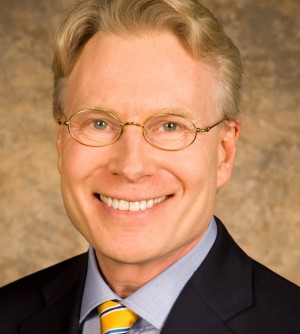 In schools across that country, children are taught about the great documents in American history: The Declaration of Independence, the Constitution, the Bill of Rights. These famous papers are studied and reiterated on tests. But how many of us truly understand their importance and impact? Many can recite a brief description or throw out a line to justify beliefs in a heated argument but, really, what do these works mean for us as a nation?
In schools across that country, children are taught about the great documents in American history: The Declaration of Independence, the Constitution, the Bill of Rights. These famous papers are studied and reiterated on tests. But how many of us truly understand their importance and impact? Many can recite a brief description or throw out a line to justify beliefs in a heated argument but, really, what do these works mean for us as a nation?
Dr. Charles C. Haynes has spent his career educating people on the nuances and meaning of one such document or, rather, a very important piece of it. As director of the Religious Freedom Education Project at the Newseum and a senior scholar with the First Amendment Center, both in Washington, D.C., Haynes is well versed in the First Amendment of the Bill of Rights—“Congress shall make no law respecting an establishment of religion, or prohibiting the free exercise thereof; or abridging the freedom of speech, or of the press; or the right of the people peaceably to assemble, and to petition the Government for a redress of grievances.” He shares this understanding during this year’s Lefever Lecture, “Soul Liberty: The meaning and significance of religious freedom in America,” at 7 p.m. Wednesday, Feb. 12, in Elizabethtown College’s Gibble Auditorium.
Religious expression is the source of much conflict around the globe and is almost always in the news.”
Haynes is best known for his work on First Amendment issues in public schools. For the past 20 years, he has been principal organizer and drafter of consensus guidelines concerning religious liberty in schools, endorsed by a broad range of religious and educational organizations.
So how does the First Amendment impact us? Even those who do not ascribe to a spiritual tradition? “Religious expression is the source of much conflict around the globe and is almost always in the news,” said Dr. April Kelly-Woessner, associate professor of political science. “These are issues that not only affect us all, but also shape politics, influence relationships between religious groups and even contribute to war.”
Elizabethtown College’s annual Lefever Lecture aims to tackle issues of ethics and public policy. Each year, the Dean of Faculty and the Department of Politics, Philosophy and Legal Studies bring speakers to the College who appeal to the campus community as a whole.
For more information about the event, contact Dr. April Kelly-Woessner at 717-361-1285 717-361-1285 or kellya@etown.edu.
717-361-1285 or kellya@etown.edu.

